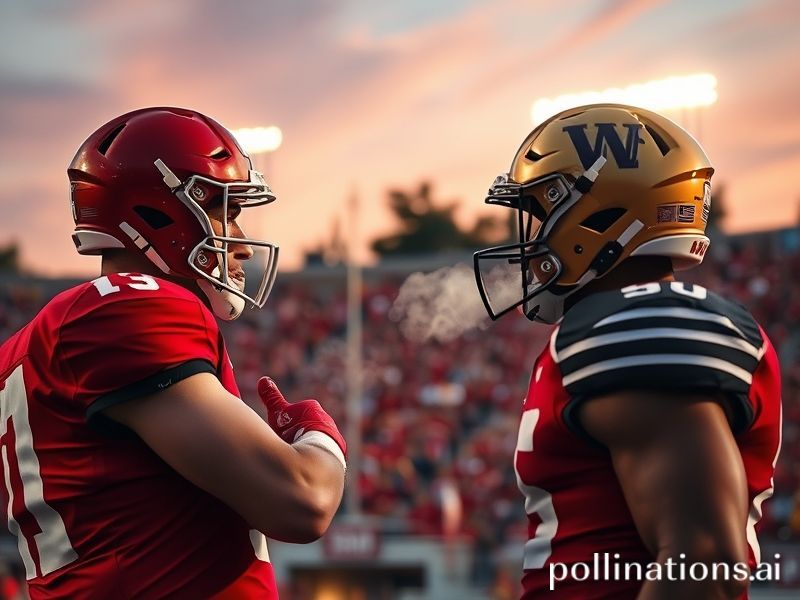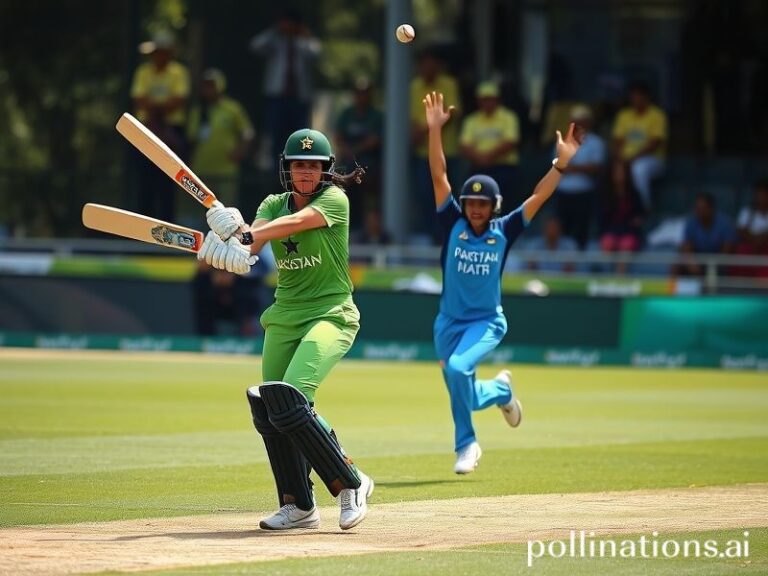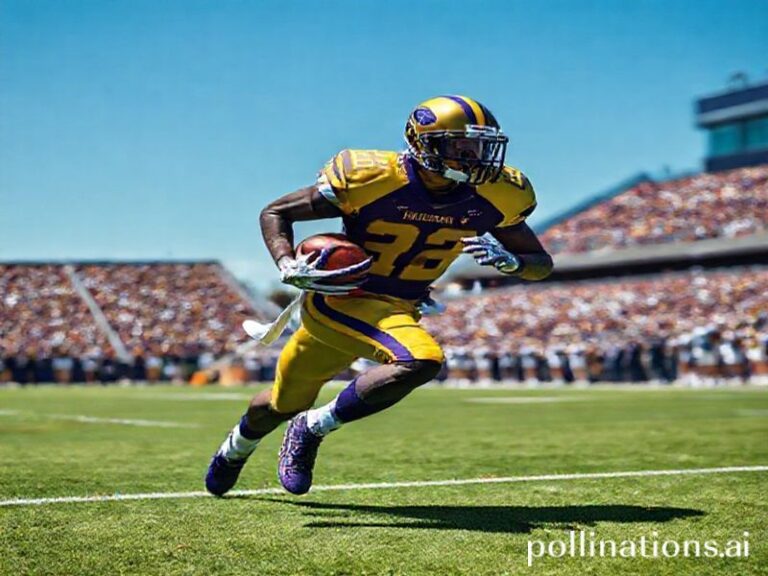Global Eyes on Tobacco Road: Why NC State vs Wake Forest Could Quietly Matter More Than Your 401(k)
The world’s attention, never especially reliable, has momentarily swivelled away from melting ice caps and crypto-billionaires launching themselves into low-orbit ego trips to focus on a more modest spectacle: NC State versus Wake Forest, a football game whose geopolitical reach is roughly equivalent to a well-aimed paper aeroplane landing in the neighbour’s koi pond. Still, in an era when every micro-event is inflated into a TED Talk, let us indulge the conceit that Saturday’s collision in Winston-Salem matters beyond the ACC’s increasingly quaint footprint.
From Berlin coffeehouses where patrons pretend to follow the Bundesliga but secretly refresh American college-football trackers, to a Nairobi co-working space whose Wi-Fi is named “GoPackGo_5G,” satellite dishes tilt toward North Carolina as if the state contained the gravitational centre of civilisation. Analysts in Seoul trading desks—bored with K-pop derivatives—have opened novelty prop bets on whether the Wolfpack can cover a line that, like most American optimism, has ballooned to 4.5 points. Meanwhile, a refugee aid volunteer in Lesbos admits she’s half-rooting for Wake because their demon-deacon mascot looks vaguely like the Greek Orthodox bishop who blessed her supplies last Easter. Humanity, bless its desperate heart, will tether hope to anything.
What the planet’s seven billion non-stakeholders may not grasp is that this fixture doubles as a referendum on modern existential dread. NC State arrives 4-0, buoyed by a defence that has surrendered fewer points than a Swiss bank surrenders account details. Wake Forest, at 3-1, counters with a quarterback who reportedly models his game on late-period Hemingway: sparse, efficient, and increasingly fatalistic. The subplot is coaching continuity: Dave Doeren has survived in Raleigh longer than most British prime ministers, while Dave Clawson has quietly built Wake into the football equivalent of a reliable Japanese sedan—never flashy, always starting in the cold.
Globally speaking, these are dark-horse Davids in a sport dominated by Georgian pecs and Alabama dynasties that resemble the Habsburgs with better nutrition. A victory for either side will ricochet through the rankings the way a single sneeze rattles the London Underground: briefly noted, then subsumed by the next strain of chaos. Yet in regions where the word “college” still implies learning rather than brand management, this contest offers a quaint reminder that unpaid labour can occasionally produce excellence before being monetised into oblivion.
Weather forecasts call for clear skies and late-summer humidity thick enough to spread on toast, conditions that favour whichever roster has acclimatised to practising in soup. Injuries are blessedly minor—only egos seem bruised so far—allowing the international audience to focus on the truly pressing issue: whether the marching bands will perform anything recognisable to ears raised on Afrobeats, K-drama OSTs, or Eurovision power ballads.
Prediction: NC State’s front seven will treat Wake’s offensive line like a polite suggestion, forcing third-and-longs that convert at roughly the success rate of UN resolutions. Expect the Wolfpack to grind out a 27-17 win, covering the spread and sending their fans into raptures that echo across time zones, startling livestock in County Cork and causing a minor spike in decibel-tracking apps from Montreal to Manila. Wake will score a late, cosmetic touchdown, ensuring both fan bases spend the rest of autumn arguing about moral victories—humanity’s favourite consolation prize.
When the final whistle blows, the planet will exhale and return to weightier matters: inflation, war, the inexplicable persistence of pumpkin-spice flavouring. But for three hours, the world will have shared a small, ridiculous ritual—proof that even in 2023, people can still agree on something, even if it’s only the shape of a ball and the colour of a jersey. And somewhere, in a language no algorithm yet translates, a child will ask, “Why do grown men cry over a game?” The honest answer, whispered with weary affection: because crying over everything else has become too expensive.







